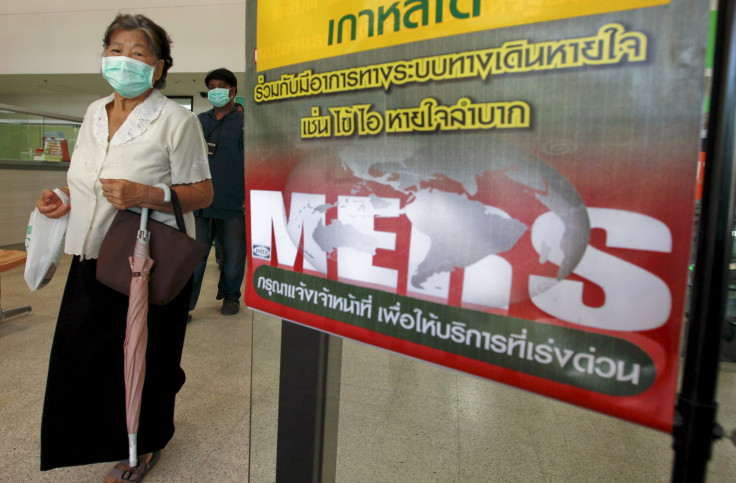MERS Outbreak 2015: Thailand Took 4 Days To Confirm First MERS Case, Leading To Worries About Deadly Disease's Spread

Thailand took four days to confirm the first case of the Middle East Respiratory Syndrome (MERS) -- a 75-year-old businessman from Oman -- the country’s health ministry reportedly said Friday, increasing concerns about whether the delay raised the risk of the disease's spread. The man, who reached Thailand on Monday, is being treated for MERS at the Bumrungrad Hospital in Bangkok, Reuters reported.
Fifty-nine men, who came in contact with the Omani resident who visited Thailand for a heart treatment, are being monitored, Reuters reported. Authorities reportedly said they wanted to monitor all the 106 people on board the flight with him, but added that it was difficult to track them. Three of his relatives, who traveled with him, are also being monitored.
"From two lab tests we can confirm that the MERS virus was found," Health Minister Rajata Rajatanavin said Thursday, according to Reuters, adding: "The first day he came he was checked for the virus. The patient ... contracted the MERS virus."
The health minister assured the public that the country was equipped to deal with the disease. "We advise the public not to panic because the patient and his family members were separated since the beginning," Rajata said, according to BBC, adding: "Our system is ready and we are monitoring the cases closely."
With the latest confirmed case, Thailand became the 26th country to be infected with the respiratory virus.
The news hit the shares of the country's aviation companies and hotels on Friday. Airport operator, Airports of Thailand, dropped 4.2 percent to more than its three-week low. Hotel operator Central Plaza Hotel's stocks fell 6.6 percent.
The scare in Thailand follows the ongoing outbreak in South Korea, where 24 people have died, 166 have been infected and nearly 6,000 have been quarantined. Due to the rising cases in the country, South Korean President Park Geun-hye's approval rating currently stands at an all-time low, Yonhap reported Friday.
The virus was first identified in Saudi Arabia in 2012 and only 458 people have died due to the disease since it was first found, the Associated Press (AP) reported.
The World Health Organization (WHO) recommends people not to come in contact with camels, which are believed to be the main hosts of the virus. It also advises against drinking camel milk or eating raw camel meat. The outbreak of MERS, which does not have a vaccine yet, follows the Ebola outbreak that killed over 11,000 people, mostly in West Africa.
WHO was criticized by some experts, who said that the organization has not taken proactive steps to curb the disease's spread.
"I don't understand why they have not prioritized developing a camel vaccine to stop transmission from young camels to humans," Michael Osterholm, an infectious diseases expert at the University of Minnesota, said, according to the AP. "If MERS shows up in the inner cities of one of the developing world megacities, like Lagos or Kinshasa, we will be in real trouble. ... We know there will be future outbreaks if MERS isn't stopped in the Middle East, but we are not very close to doing that now."
© Copyright IBTimes 2024. All rights reserved.






















